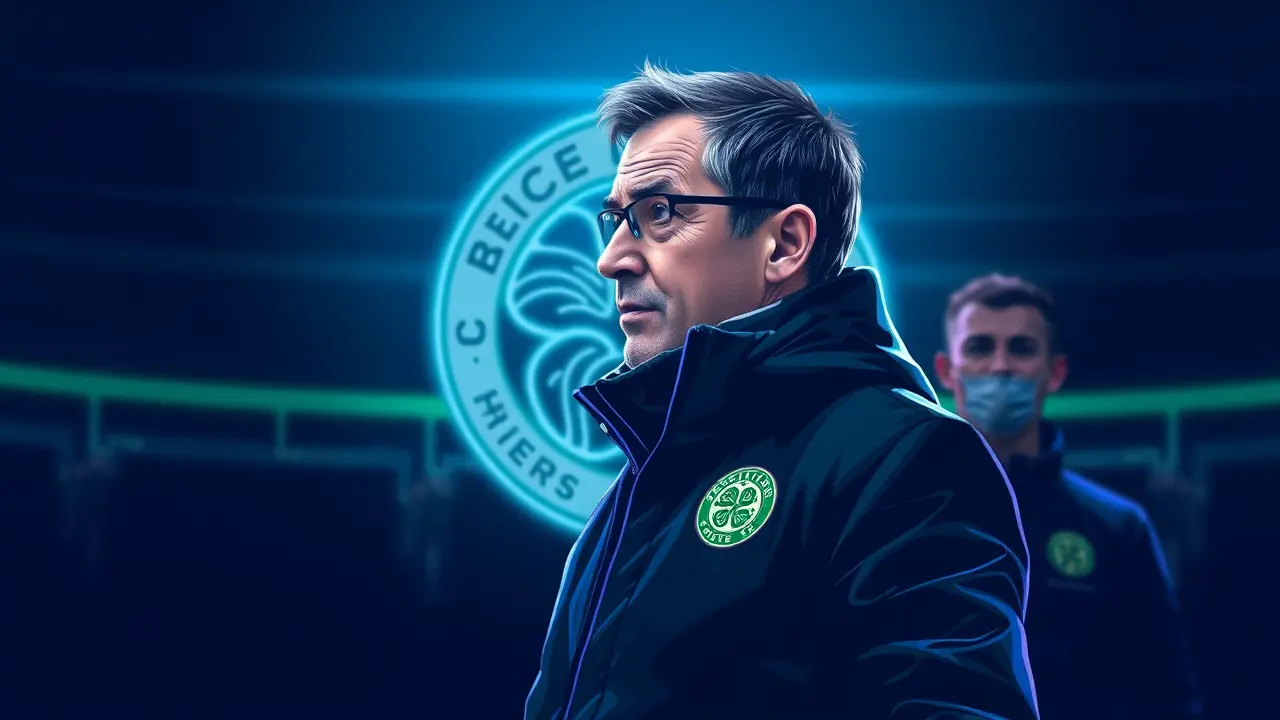
Hottest
SportbasketballCoaching Changes
Brendan Rodgers resigns as Celtic manager, club is second in the Scottish Premiership.
JA
Jack Turner
1 week ago7 min read1 comments
The green half of Glasgow was rocked to its foundations today as Brendan Rodgers, the man who once seemed destined to carve his name alongside Jock Stein and Martin O'Neill in the Celtic pantheon, tendered his resignation, leaving the club adrift and eight points adrift of a surging Hearts in the Scottish Premiership. This isn't merely a managerial change; it's a seismic event in a footballing landscape defined by a singular, brutal truth: for the last four decades, the Scottish title has been the exclusive property of either Celtic or their ancient rivals, Rangers.The lone, glaring exception was the 1984/85 season, when a certain Alex Ferguson, with his Aberdeen side, shattered the duopoly—a historical ghost that now haunts the corridors of Celtic Park with terrifying relevance. Rodgers, a manager whose first tenure from 2016 to 2019 was a near-perfect symphony of domestic dominance, including an invincible 'Treble' season, returned in 2023 with the weight of history and expectation on his shoulders.His second act, however, has been a stuttering, inconsistent affair, a pale imitation of his former glory. The statistics tell a damning story: a defence that leaks goals with uncharacteristic generosity, a midfield that has lost its relentless, pressing identity, and an eight-point deficit that, in the context of the Old Firm's usual dominance, feels like a chasm.Comparing this squad to the legendary Celtic teams of the past—the Lisbon Lions with their iron will, or even Rodgers' own fluid, attacking side of the late 2010s—only highlights the current decline. It's a fall from grace reminiscent of a great champion who has lost a step, their timing gone, their aura diminished.The club's terse official statement, confirming they 'accepted' his resignation and that he leaves 'with immediate effect,' speaks volumes about the abruptness and likely the acrimony behind the scenes. This isn't a fond farewell; it's a strategic severance.The immediate appointment of former boss Martin O'Neill and ex-player Shaun Maloney as interim leaders is a classic crisis-management move, reaching for familiar, beloved figures to steady a ship threatening to capsize. O'Neill, a titan of the club's modern era, brings gravitas and a connection to a more glorious past, while Maloney offers a link to the dressing room and a more contemporary tactical understanding.But this is a stopgap, a plaster on a deep wound. The real drama now shifts to the boardroom, where the decision on a permanent successor will define Celtic's trajectory for years.Do they seek a progressive, modern coach to rebuild the philosophy, or a pragmatic firefighter to simply secure the title at all costs? Names like Roy Keane, with his ferocious will to win, or a rising star from the continent will immediately be thrust into the rumour mill. The consequences are monumental.Failure to win the league this season isn't just about missing out on a trophy; it's about ceding financial power from Champions League revenue, losing the club's magnetic pull for top talent, and handing Rangers a potentially era-defining advantage. For Rodgers, this is a stunning blow to a reputation built on success in Scotland.His next move will be scrutinised intensely; does he retreat to England for a redemption project, or does he seek a new challenge abroad? For Celtic, this is their darkest hour in a generation, a moment that calls for more than just a new manager—it demands a soul-searching examination of the entire footballing operation. The ghosts of Ferguson's Aberdeen are no longer a historical footnote; they are a very real and present danger, and the throne of Scottish football, for so long occupied by Celtic, is now perilously vacant.
#Brendan Rodgers
#Celtic FC
#manager resignation
#Scottish Premiership
#Hearts
#Martin O'Neill
#hottest news
Stay Informed. Act Smarter.
Get weekly highlights, major headlines, and expert insights — then put your knowledge to work in our live prediction markets.
Related News
© 2025 Outpoll Service LTD. All rights reserved.













